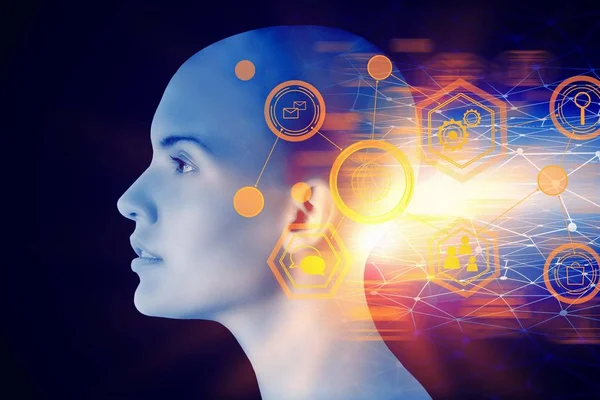AI Booms amidst Economic Woes: Charting a Path Forward

Navigating the opportunities and challenges of AI for a Better Future
In a time where the world is grappling with an economic slowdown, many are pondering the future of job markets and the global economy. But, amidst this turbulence, there is one sector that continues to thrive – Artificial Intelligence (AI) – one of the most transformative technologies of the 21st century, directly impacting most industries and sectors worldwide. As it continues to evolve and advance, it is crucial to understand the lessons learned from the implementation of AI in the past and how they can inform its future development.
According to the MIT Tech Review, “instead of a full-blown AI winter, we are likely to see a drop in funding for longer-term AI research and more pressure to make money using the technology…Researchers in corporate labs will be under pressure to show that their research can be integrated into products and thus make money.”
In this article, we will delve into the driving forces behind the expansion of the AI industry and evaluate its potential impact on the future.
Uncovering the Rise of AI Despite Economic Hardship
One of the key factors fuelling the growth of the AI sector is the sheer volume of data being produced every day. The proliferation of the internet and interconnected devices has resulted in a surge of data, providing ample sustenance for AI algorithms to feed on and learn from. This has led to numerous advancements in the field and enabled AI systems to tackle complex problems with ease.
Another driving force behind the expansion of AI is the investment being poured into the sector. Despite the economic slowdown, AI continues to attract considerable investment from both the public and private sector, with corporations and governments recognising its potential. This investment has facilitated ongoing research and development, pushing the boundaries of what AI is capable of.
Impact on the Global Economy
As AI continues to evolve, it is important to consider its effect on the global economy. On one hand, AI has the potential to create new job opportunities and industries, boosting productivity and driving economic growth. On the other hand, there are concerns that AI could lead to widespread job loss as machines and algorithms replace human workers in various industries.
To ensure that AI contributes positively to the global economy, it is crucial to adopt a responsible approach to its development and deployment. This requires that the benefits of AI are distributed widely and that measures are taken to mitigate any negative impacts on job markets.
It is also essential to consider the ethical implications of AI and ensure that the technology is used in a way that benefits society as a whole. This involves ensuring that AI systems are transparent and accountable, and that their decisions are fair and unbiased. Additionally, it is important to invest in education and training programs to help workers transition to new roles as AI continues to transform the job market.
The Path to a Positive AI Future
In order to achieve a future where AI positively contributes to the global economy, it is important to address the challenges and opportunities that the technology presents. This requires a multi-disciplinary approach that involves input from experts in fields such as economics, ethics, and computer science.
One key step is to establish a regulatory framework that balances the benefits of AI with the need to protect human rights and interests. This framework should ensure that AI is developed and used in a way that benefits society as a whole, and that its negative impacts are minimized.
Another important step is to invest in research and development to further advance the capabilities of AI. This includes exploring new applications of AI and developing new algorithms that can tackle increasingly complex problems. Additionally, it is important to invest in infrastructure and resources that support the growth of the AI industry, such as data centres, Cloud computing and high-speed networks.
Finally, it is crucial to engage with the public and raise awareness about the benefits and challenges of AI. This includes educating the public about AI and its potential impact on the job market and the economy, as well as fostering a public dialogue about the ethical implications of the technology.
In conclusion, the AI industry is thriving in the midst of an economic downturn, presenting both opportunities and challenges. While AI has the potential to drive economic growth, it is important to approach its development and deployment with caution, ensuring that its benefits are shared widely, and its negative impacts are minimized. By doing so, we can chart a course towards a future where AI contributes positively to the global economy.


